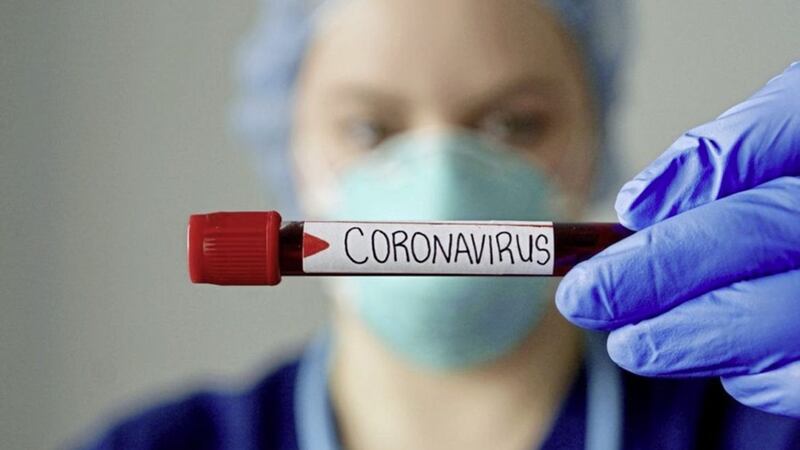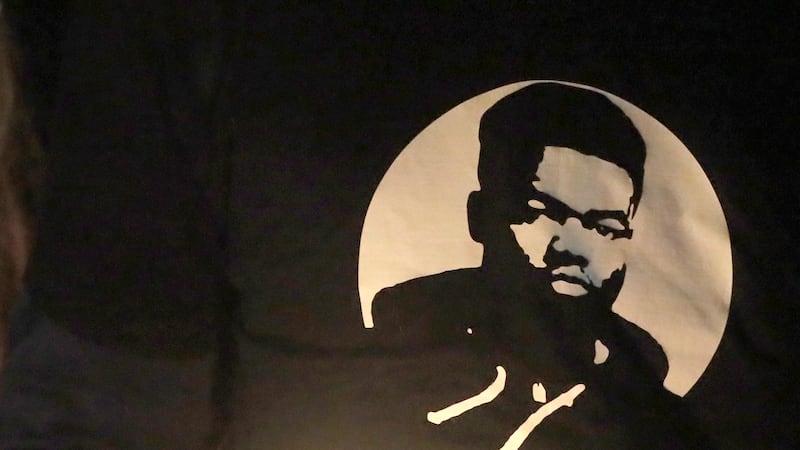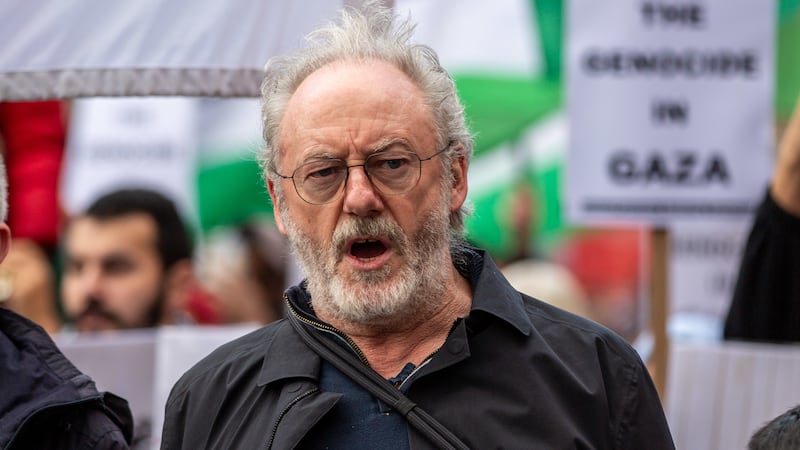The level of community transmission of coronavirus in the Republic of Ireland has doubled in the last 10 days, a public health expert has said.
The government tightened its restrictions yesterday in a bid to curb a surge in Covid-19 cases.
Members of the National Public Health Emergency Team (NPHET) have been sounding the alarm over the escalation in cases with the country's rate of growth the fourth highest in Europe.
The chairman of NPHET's Irish Epidemiological Modelling Advisory Group, Professor Philip Nolan, defended advice provided to government saying there has been a slow but very particular rise in the level of disease in the population.
"We've seen the virus spread, essentially, from workplaces to households, and between households and into the community," Mr Nolan told RTÉ's Morning Ireland.
"The rate of growth is significantly slower than it was at our other critical juncture back in late February and early March, but it's too fast.
"We need to move quickly now together to prevent further transmission between households and from households into the community, and that's the core message behind these interventions, to limit our social contacts and to limit those social contacts to small groups.
"Unless we move now collectively and firmly to prevent further transmission of the virus, we will see case numbers rising to a level that are unsustainable."
Liz Canavan, of the Department of the Taoiseach, said the 14-day cumulative total of cases per 100,000 of the population is now at 26.
"The increase in cases has not been matched by any significant increase in our hospitals or an increase in the numbers dying from the disease," she added.
"However, if we allow it to continue and a rise in cases to go unchecked and to become widespread within our communities, we risk seeing increased danger to the most vulnerable in our community.
"We also risk seeing that increased demand on our hospitals and on those frontline health care workers who have done so much to protect us and your loved ones while all the time risking their own health.
"We risk undoing the progress we have made towards reopening schools and resuming health care. We therefore risk having to introduce even more restrictive measures."
She added that clusters have emerged by congregation and social interaction among households and workplaces in every county.
She said the new measures are not aimed at punishing any particular group, or to target any particular sector.
Taoiseach Micheál Martin confirmed yesterday that all outdoor events have been limited to 15 people, and indoor gatherings to six people, down from 50.
Weddings have been excluded from the updated restrictions.
After a lengthy Cabinet meeting, the government agreed that sporting events should be played behind closed doors with social gatherings before and after to be avoided.
Gardaí may also be given new powers to tackle breaches of social distancing rules in restaurants, bars and private homes.
Restaurants and bars serving food can remain open but must close by 11.30pm.
People have been told to avoid public transport where possible and to wear face masks on private transport when households are mixed.
The over-70s have been advised to limit their interactions to a small network for short periods.
Businesses are also being encouraged to advise staff to work from home where possible.
A further short to medium-term plan for the way forward will be published by the government before September 13.
Prof Nolan denied accusations that there had been a lot of uncertainty around types of transmission.
He said: "My sense is that we have been quite clear with the public about the types of transmission that are occurring and where they are occurring. We were telling the public about this increase in the reproduction number in the background."
He said the level of community transmission "appears" to have doubled over the last 10 days.
He also said the decision to limit indoor gatherings to six people from three different households is a "simply a trade-off in risk".
"The more people you have in a setting, the greater the risk of viral transmission and it's largely a linear relationship," he added.
"So you have to establish a cut-off, which on the one hand allows people to have a reasonable level of social contact that allows us to be human during this very difficult period, and at the same time not create a significant risk of transmission."
Meanwhile, a total of 69,500 employers are registered with Revenue for the Temporary Wage Subsidy Scheme, and an estimated 370,000 employees are receiving payments.
A total of 2.5 billion euro has been paid out under the scheme since it was introduced in March.
Approximately 232,400 people are receiving the Pandemic Unemployment Payment (PUP) - a reduction of approximately 30,100 compared with last week.
Taoiseach @MichealMartinTD is making a statement on #Covid19 following today's Cabinet meeting | Live #coronavirus blog: https://t.co/fncYQHiV8V https://t.co/ArZIUPhmXf
— RTÉ News (@rtenews) August 18, 2020








